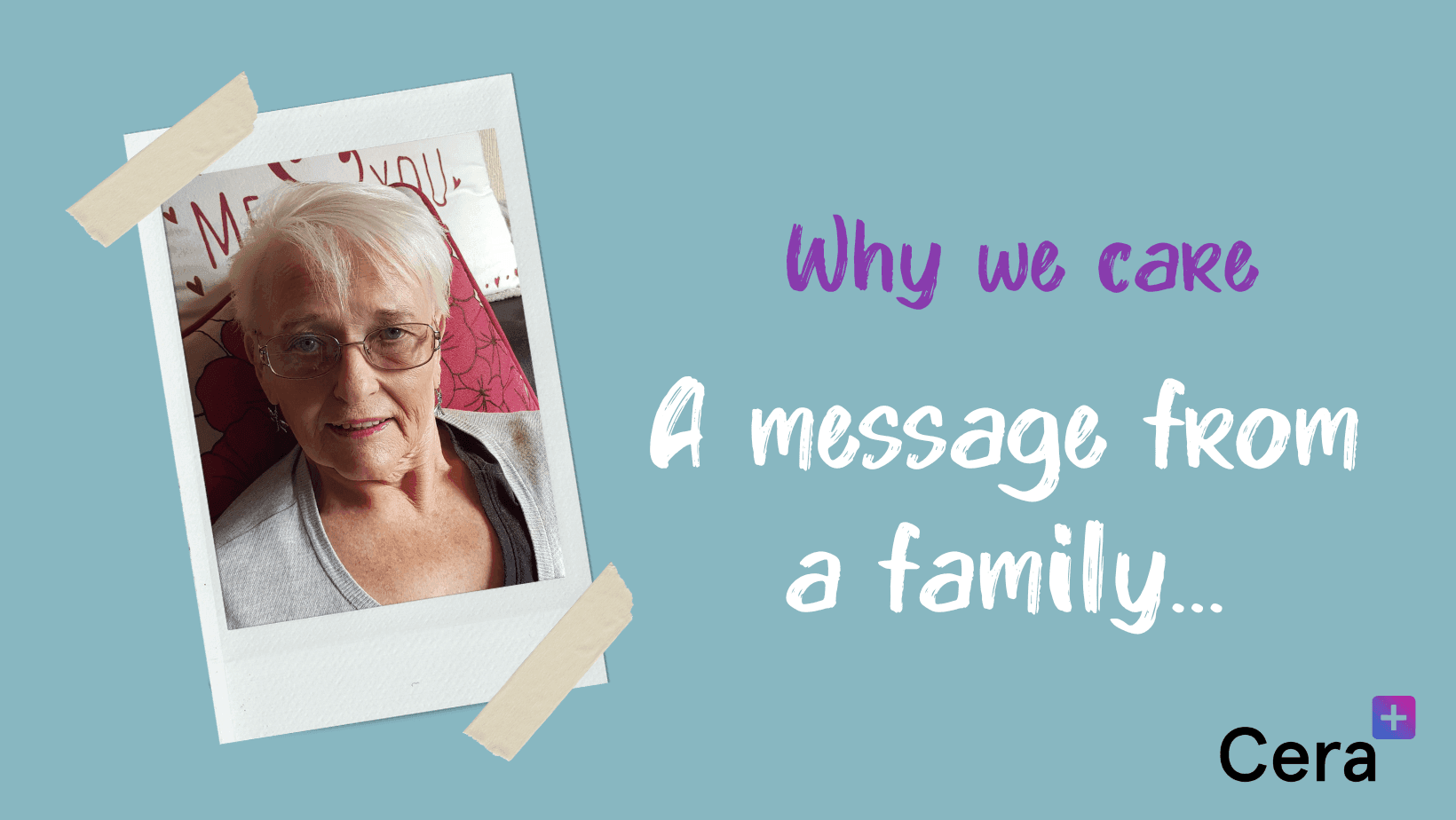How to provide the best epilepsy care
About Social Care
National Epilepsy Week runs the last week of May each year. The week aims to raise awareness of the condition and how it affects people. At Cera Care, our team provides support for service users with epilepsy. If you’ve never provided epilepsy care before or would like to know more, we’ve put together some information to help you - authored by Lindsey Appleby-Flynn who leads on Cera's Design and Development within our L&D function.
Whether you’re a care worker or a family member supporting someone with epilepsy, we hope that this guide can help you.
What is epilepsy? Epilepsy is a condition affecting the brain. It’s most commonly associated with seizures, which are caused by bursts of abnormal electrical activity within the brain. There are many different types of epilepsy and many different types of seizures, which can lead to a wide range of symptoms. These can range from “auras”, during which the person might appear to behave completely normally to those around them, all the way to convulsions and loss of consciousness. There is no cure for epilepsy. However, around two-thirds of people with epilepsy find that their condition can be at least partly controlled with medication. It’s a very common condition, so you may well need to support someone with epilepsy during your career in care. Approximately one in every 100 people has some form of epilepsy in the UK – this is around 50 million people worldwide!
What happens during an epileptic seizure?
Some people experience warning signs before a seizure. These might include an intense feeling of déjà vu, smelling something that isn’t really there, or seeing flashing lights. However, not everyone experiences these. Some seizures come without any warning – they might even happen while the person is asleep. There are lots of different types of seizures, including
Tonic clonic seizures: These are what most people picture when they think of epilepsy. During a tonic clonic seizure, a person is unconscious and convulsing, as their muscles tighten and relax repeatedly. They may cry out, and their breathing may be affected.
Focal and focal aware seizures: During these seizures, the person will be awake, but may feel confused or afraid. Their limbs might suddenly feel floppy or stiff, or they might jerk or make repetitive movements. They may experience hallucinations or sudden intense feelings of fear or déjà vu. These seizures sometimes happen as auras or warnings of a tonic clonic seizure.
Myoclonic seizures: During a myoclonic seizure, muscles will jerk. These are usually brief, but they may happen in clusters, meaning that it can look like it lasts for longer. Unlike with tonic clonic seizures, the person is usually awake.
Absence seizures: These are more common in children but can occur in adults too. The person may appear to be daydreaming and look blank for a short while. They will not be aware of what they are doing. Because these seizures are often short, they may not even be noticed.
After a seizure, the person could be confused, upset, disorientated and incredibly tired.
How can I provide the best epilepsy care?
Learn what to expect If you’re supporting someone with epilepsy, it’s important to know the type of epilepsy they have. What type of seizures do they experience? Do they have any warning signs before a seizure?
Learn about the person’s triggers
Some people find that certain things trigger seizures for them. Everyone’s condition is different, but triggers may include lack of sleep, drinking alcohol or missing medication.
Medication
If the person you are supporting takes medication to control their seizures, it is vital that they are supported to take their medication in a timely manner. Delays or missed doses may result in seizures. Anti-seizure medication doesn’t work for everyone. Some people who continue to have seizures may need emergency medication that is given during their seizures. If you need to administer this, you’ll be trained in advance.
Epilepsy care during and after a seizure If you suspect someone is about to have a seizure, guide them to sit or lie down somewhere safe. This will avoid injury on hard floors or furniture. Make sure that their head is cushioned. Do not put anything in their mouth, and do not hold them down. Be aware of how long the seizure lasts – seizures that last over five minutes are a medical emergency. In some cases, you may need to administer medication during a seizure. If this is the case, you’ll be given training beforehand and it will be clearly marked in the person’s epilepsy care plan.
When the seizure is over, they may be confused or upset, and may also have a headache and be very tired. It's important to give them quiet time to recover. They may be embarrassed and need reassurance, especially if the seizure has happened in public or if they have wet themselves.
Don’t give them anything to eat or drink until you’re sure that they have recovered. Most people will want to lie down and possibly sleep after a seizure. This is important, as it gives the brain time to recover.
Emergencies in epilepsy care You will not usually need to call an ambulance during an epileptic seizure. However, sometimes it will be urgent to get medical help quickly. Call 999 if:
- A seizure continues for longer than five minutes.
- Multiple seizures follow on from each other with no break in between.
- The person injures themselves during a seizure and needs medical help.
- The person is having a seizure for the first time.
- The person has trouble breathing even after the seizure has stopped.
More about working in care

Nutrition and Hydration - Essential Care for the Elderly
Good nutrition and hydration is vital for everyone, and it's especially important for elderly individuals.
Why we care - a message from a family
A family's note of thanks to the carers who provided comfort, dignity, and peace during their gran's final days.
